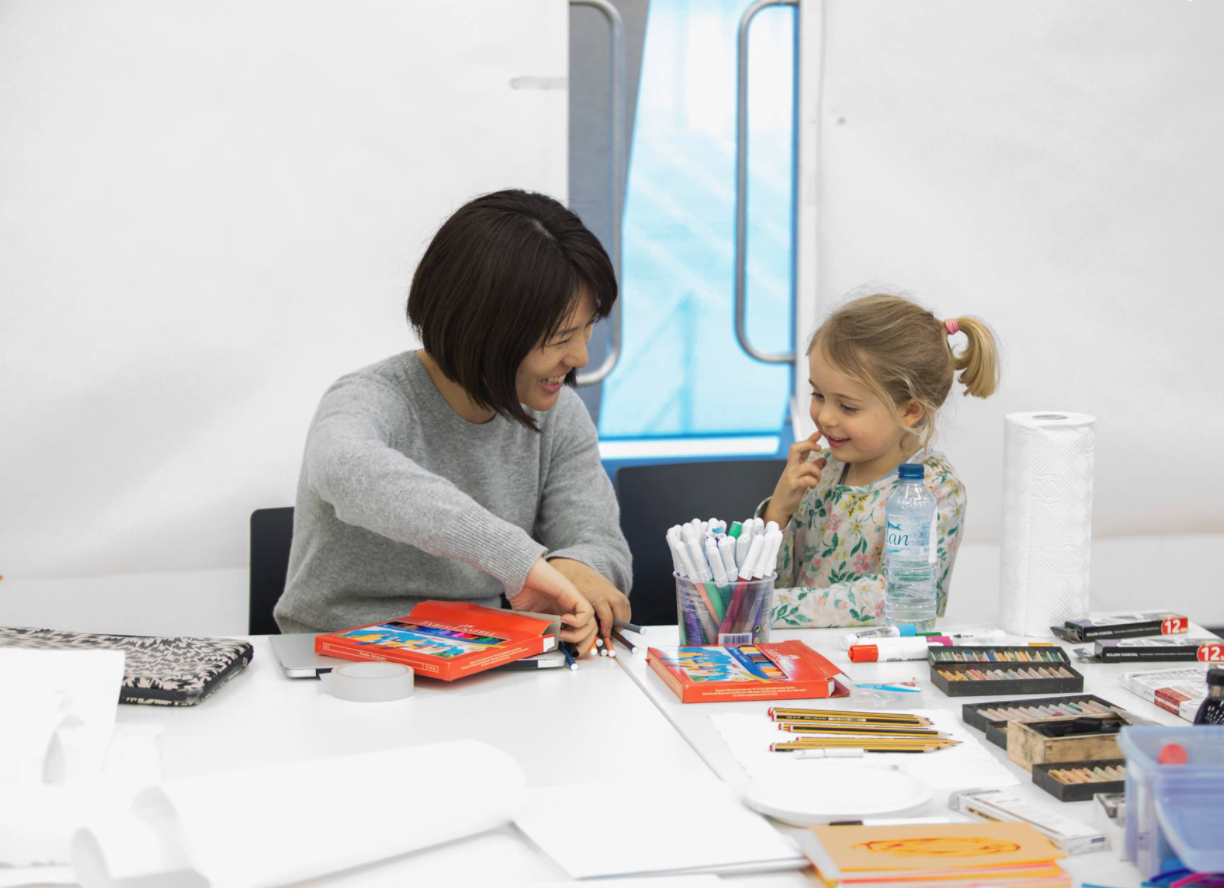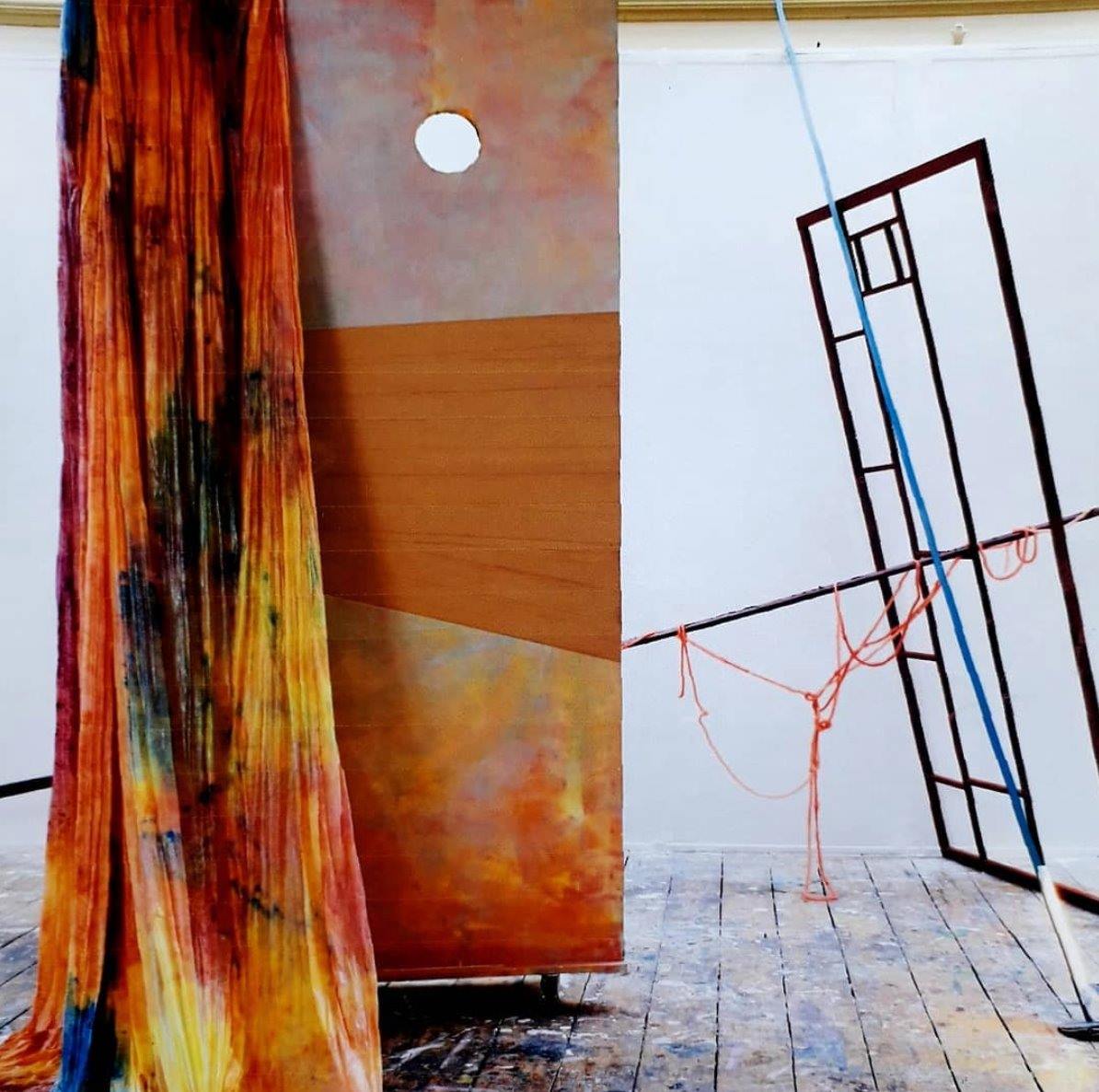A case study from Shape Arts, a recipient of the Mayor of London’s Creative Workspace Resilience Fund.
Breaking down barriers
Shape Arts is a disability-led arts organisation whose goal is to improve access to culture for disabled people. They do this by promoting creatives and artists with disabilities and in turn opening the arts, creative and cultural industries to wider inclusion, through training and participatory arts and development programmes.
Their work is project-focused and issue-based. This means they prioritise meaningful projects that try to solve contemporary issues like lack of inclusion, and through these projects engage a wide range of disabled talent as well as other issue-based practitioners and allies.
At their shared workspace offices in Peckham, Shape hosts artists, creatives, filmmakers, live-streamers and other disabled creatives or disabled-led creative teams, supporting disabled talent to remove barriers and thrive. Many of their tenants depend on Shape’s offices as they offer a safe, comfortable space to create and connect.
‘The offices and locations are fully inclusive,’ David Hevey, Shape CEO explains. ‘We have accessible lifts to our Shape spaces, two accessible toilets and staff on hand to assist when required – we also have accessible furniture, including chairs, large screens, braille machinery and quiet zones.’
But Space Arts offer more than just workspace: their tenants have access to mentoring and creative support which are free to all disabled users. Revenue comes from touring works, Shape’s in-house gallery, and accessibility training and consultancy, with proceeds going towards the artists and the community.
‘We are vital to the cultural ecology because we lead the drive for barriers removal and show organisations and creatives what that looks like and how it can be achieved. It’s no exaggeration to say that our projects change lives: without our support, so many disabled artists and creatives would have given up,’ says David. Today Shape supports more than 200 individuals, through a range of projects from art to broadcasting, together reaching an audience of millions.
Impact of the pandemic
Shape began to see the effects of Covid-19 in the very early stages of the pandemic. ‘Many were alarmed at the early stages – the somewhat laissez-faire approaches of government meant effects began to appear in early March,’ explains David. ‘Due to the high number of disabled people we employ being in the vulnerable groups many went onto shield.’
Understanding the severity of Covid-19 for their tenants in particular, David and his team realised that the end-game could be lock-down and prepared for that.
‘We asked our teams and talent in advance to work from home, supporting our artists whose work was postponed to do online versions of their work, and asking our locationbased creatives to plan for our creative office location to be shut for a considerable time too.’
Whilst David managed to prepare Shape and the team to lessen the effects of the pandemic, the closure of the studios, the need to shield, and postponement of work has hit their community hard.
Shape artist Poppy Nash, who is now making Covid-19 masks for staff across Shape’s locations and work spaces, said ‘Covid-19 ended so much for me. I was shielding, I was isolated and I had almost entirely forgotten that I had ever been an artist. Now, Shape is so vital for my return to being an artist and realising what I can do.’
Artist Jason Wilsher Mills, whose Shape-supported projects include exhibitions at Tate Exchange and the Folkestone Triennial both postponed due to Covid-19, says, ‘Right at the beginning of my career as an artist, Shape Arts were there for me and have been there for me ever since, from showing my first piece of art in the Shape Open in 2011, to having the amazing opportunity to show work in the Triennial. They have been there for me in the good times, and when I needed advice, help, and support in the ‘not so good’ times, like during Covid-19 lockdown”.
Whilst many businesses have been able to reduce costs during the pandemic, Shape has incurred additional costs from the extra resources and equipment it needed to support its disabled staff and tenants, for example sign language or live captioning to help deaf members of the team access online meetings.


Though Covid-19 restrictions are starting to relax for many, the additional costs for Shape studios will continue and they are struggling to find a way to recover from the pandemic. Due to the increased vulnerability of their artists and staff, they need to make significant investments to make their studios and exhibits Covid-19 safe. Hygiene will be paramount, with the building, offices, and studios needing deep cleaning, as well as specialist deep cleaning for their National Disability Movement Archive & Collections project.
The charity was struggling to recover. Not able to see a way out without further support, Shape Arts applied for the Creative Workspace Resilience Fund. Their need for support was evident as well as their commitment to diversity and inclusivity. The fund team and panel made an award to further support artists and help cover the costs associated with making Shape Covid-secure.
‘We are so grateful to receive support, this has meant our business feels significantly more supported and certainly feels more solid about re-opening and being a safe place to operate from once again,’ David explains. ‘With such a severe loss of income and increase in expenditure it was hard to see how we could continue to support our disabled artists, and we did not have the money to cover the increased costs of health and safety when reopening the business; this funding has been a lifeline for that reason alone.”
Shape will use the funding directly to support their disabled creative talent to survive, develop and reconnect. It will allow the business to recoup costs incurred from setting up remote working, manage the re-opening and support new digital projects.
David explained how many disabled people who work for Shape Arts are fearful of what would happen to disabled people generally in Covid-19, particularly those shielding and high-risk. – ‘It’s vital that we start promoting the work of our artists again because they need to know they are part of the ‘new normal’ and be visible, and audiences will be surprised by the new workaround isolation that our artists like Jason are making, and achieving high impact around too.’
Looking to the new normal
David hopes that the new normal engages far more with artists and creatives who face barriers and continues to promote those diverse creative perspectives to the mainstream. A significant challenge is how to monetise digital outputs, so proceeds from the support can be reinvested into building digital business models to ensure versatility and resilience for the future.
‘As Shape CEO, I have always pushed us to show art and culture about the way we live now, and one positive thing to come out of the lockdown is the way disabled artists have creatively responded to isolation, which we will continue to encourage and find platforms to promote.’
It remains to be seen whether the creative sector will open up to diversity or shrink away from the challenges post-Covid. Either way, Shape is ‘firmly embedded in activist-culture, because so much of the new talent emerges from those margins,’ says David.
‘I have learned that one has to fight to get in – but that great culture can be made from such margins I am not sure the creative sector as a whole will remain entirely open to new voices no matter how hard we fight – but I am an optimist at heart and I feel the creative sector is going to bounce back even more powerfully, with exciting new stories and ways of telling them, particularly perhaps about how to make great creative work in a crisis – and so many of these new stories will be led by disabled creatives!’
For more information on Jason’s work see https://www.bbc.co.uk/news/uk-england-lincolnshire-53083122

